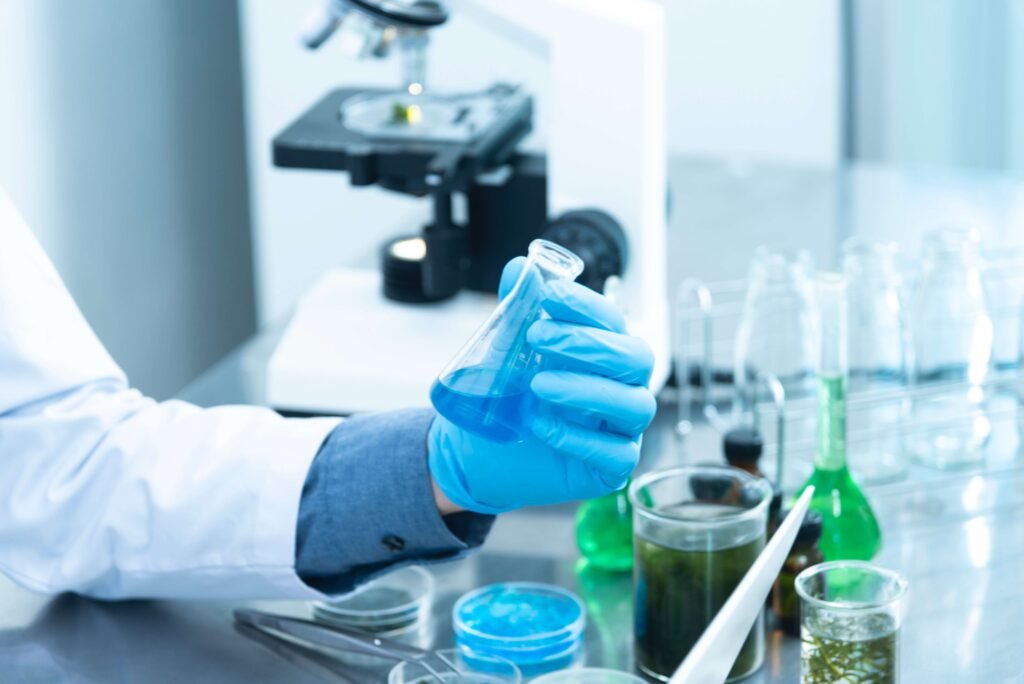Follow us on:
- January 17, 2023
- 3 mins read
Share this post on:
Contribution of Spirulina Platensis Supplement on COVID-19 Prevention
Spirulina is a filamentous cyanobacterium known for its high nutritive value and therapeutic or remedial properties. The end of this study was to probe the part of Spirulina supplementation on coronavirus (COVID-19) disease prevention and hospitalization.

- January 17, 2023
- 3 mins read
Share this post on:
Share this post on:
Spirulina, a blue-green alga, is a microscopic filamentous cyanobacterium used for centuries as a safe dietary supplement for both humans and animals. It is produced primarily from two species of cyanobacteria classified into the genus Arthrospira: Arthrospira platensis and Arthrospira maxima. Spirulina is known not only for its high nutritional value but for its specific therapeutic properties. Despite the desired anti-viral, anti-inflammatory, antioxidant, immunostimulatory, and immunomodulatory properties of Spirulina compounds, clinical studies in humans to assess its effectiveness against SARS-CoV2 infections do not exist.
Spirulina supplementation at a dose of 6 g daily can contribute to the war against SARS-CoV2, by reducing the need for hospitalization. The aim is to Contribution to Spirulina Platensis supplementation in COVID-19 prevention and hospitalization.
MATERIAL AND METHOD
Research suggested the administration of Spirulina to 186 Greek individuals, non-vaccinated against the disease for various reasons, with known sociodemographic data, lifestyle, and medical history (recorded in structured form). These persons met the following inclusion criteria:
- age 30-60 years,
- negative history of drug or food allergies,
- absence of diabetes mellitus type 1 or 2, cancer, renal failure, liver dysfunction, congestive heart failure, or chronic obstructive pulmonary disease,
- no treatment with corticosteroids, blood thinners, immunosuppressants, radiotherapy, or chemotherapy
- absence of phenylketonuria,
- no pregnancy or lactation, and
- serum 25(OH)D levels > 20 ng/mL.
Among the 186 (87 men, 99 women) unvaccinated individuals, 102 agreed, giving written consent with a signed informed consent form, to receive orally 6 gr of high-quality Spirulina (Arthrospira platensis) supplementation (Hellenic Spirulina Net: Production unit: Thermopigi, Sidorokastro, Serres, Central Macedonia, Greece) daily for 6 months: June-November 2021. Anthropometric characteristics (height, weight, body mass index/BMI), systolic and diastolic blood pressure, complete blood count, and biochemical assessments, were recorded and measured before Spirulina supplementation.
During the 6-month period, frequent telephone communication with the 186 unvaccinated individuals determined the state of their health and any side effects experienced from Spirulina by those taking it. Any patient with confirmed SARS-CoV2 infection with persistent high fever, breathlessness, blood oxygen saturation level below 93%, persistent pain or pressure in their chest, persistent diarrhea and vomiting, mental confusion, or bluish discoloration of fingers or toes would be referred to the hospital for further management and treatment.
Statistical analyses were performed using GraphPad Prism 3.0 (GraphPad Software, Inc., San Diego, CA, USA). Results were expressed as mean±standard deviation (SD). Comparisons of baseline characteristics (gender, age, smoking habit, BMI, blood pressure levels) between the individuals who received Spirulina and those who did not were done using Student’s t-test. Significant differences between categorical data were assessed with Fisher’s exact test using contingency tables. P-values <0.05 were considered statistically significant.
RESULTS
The results of the 186 unvaccinated individuals’ (median age: 47, Range: 30-60 years) course of health during the 6-month study period are presented. Among the 102 unvaccinated individuals who received Spirulina, only 14 (13.7%) contracted SARS-CoV2 (confirmed Delta variant) with mild symptoms and 2 (1.9%) needed hospitalization because of acute viral gastroenteritis (fever, abdominal pain, diarrhea, and vomiting).
In contrast, among the 84 unvaccinated individuals who did not receive Spirulina, 62 (73.8%) contracted SARS-CoV2 (confirmed Delta variant) with mild symptoms and 17 (20.2%) needed hospitalization (of which 8 were diagnosed with pneumonia; 4 with acute respiratory failure; 2 with acute viral gastroenteritis; 1 with pulmonary embolism; 1 with acute respiratory distress syndrome; and 1 with acute pericarditis). None of the hospitalized patients died.
There was no statistically significant difference in gender, age, smoking habit, BMI, or blood pressure levels between the individuals who received Spirulina and those who did not. No side effects, discomfort, or other complaints (except a few cases of mild transient headache) were reported by the 102 individuals who received Spirulina.
CONCLUSION
- In conclusion, our study results demonstrate that, apart from vaccination, masks, and social distancing, Spirulina supplementation can contribute to the war against SARS-CoV2, preventing COVID-19, & none of the hospitalized patients died.
- Further clinical randomized trials are necessary to determine the effect of Spirulina supplementation in the treatment of COVID-19.
Share this post on:
Subscribe To Our Newsletter
Know More about our Products and R&D

